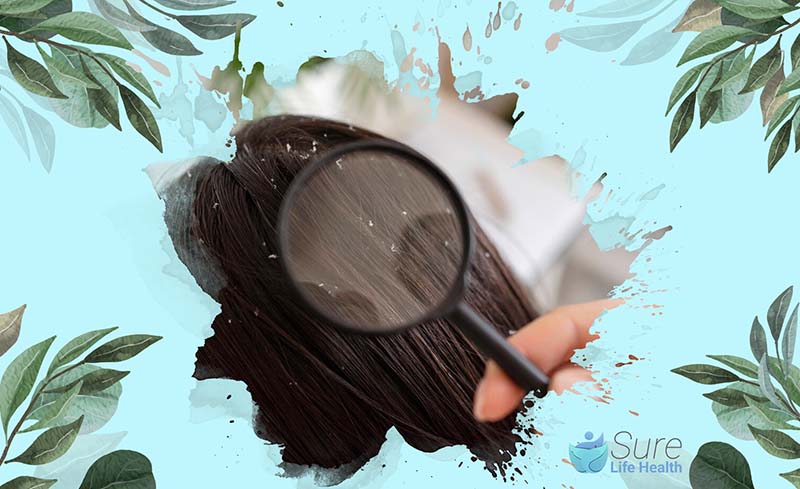Is Sunflower Oil Good for Hair? It isn’t just for cooking; it’s a hidden gem for enhancing hair health too! While you might be familiar with its culinary uses, its benefits for hair care are often overlooked.
Packed with nutrients, sunflower oil nourishes both your scalp and strands, promoting shiny, resilient hair. Its hydrating properties work wonders, fostering scalp health and bolstering hair strength. Remarkably, sunflower oil can even aid in thickening hair strands.
If you’re grappling with dryness, damage, dandruff, frizz, or thinning hair, sunflower oil could be your saving grace. Let’s delve deeper into the benefits of sunflower oil for hair and explore how to seamlessly incorporate it into your hair care regimen.
Is Sunflower Oil Good for Your Hair?
Yes, sunflower oil is truly a boon for hair health. Its benefits are manifold, ranging from taming frizz and softening dry or curly hair to nourishing both strands and scalp.
By virtue of its rich composition—packed with essential fatty acids, vitamin E, and antioxidants—sunflower oil stands out as a key ingredient in various hair care formulations.
Its versatility knows no bounds; whether applied as a scalp treatment, hair mask, frizz controller, or conditioner, sunflower oil works wonders in enhancing hair texture, hydration, and overall vitality.

Benefits of Sunflower Oil for Hair and Scalp
- May help with flaky scalp: Packed with anti-inflammatory properties, sunflower oil combats dandruff-causing bacteria and product buildup, addressing dryness and itchiness. It also curtails thinning hair, premature hair loss, male and female pattern baldness, and alopecia. If you’re looking to conceal thinning hair, sunflower oil can lend a hand.

- Acts as an emollient: Thanks to its high concentration of fatty acids, sunflower oil serves as an excellent emollient, forming a protective barrier to moisturize, soften, and smooth hair. Its lightweight texture ensures easy penetration into the hair shaft, locking in hydration to combat dryness and damage.
- Eliminates frizzy hair: The fatty acids in sunflower oil deeply nourish, making it ideal for taming unruly frizz. It envelops the hair cuticle, creating a protective film that eliminates frizz. Its lightweight nature means it suits all hair types, fighting frizz without weighing strands down.
- Enhances softness and shine: Sunflower oil can counteract damage caused by heat styling, color processing, and poor hair care habits. Studies indicate its effectiveness in preventing hair damage and split ends. For those seeking softer, shinier strands or dealing with hair breakage, sunflower oil is a reliable ally.

- Stimulates hair growth: Rich in Vitamin E and Oleic acid, sunflower oil is a powerhouse ingredient for promoting healthy hair growth. These nutrients are essential for stimulating the growth of new strands, making sunflower oil a valuable addition to your hair care routine.
Utilizing Sunflower Oil for Optimal Hair Care
Sunflower oil is celebrated for its diverse benefits in hair care, ranging from enhancing hair health to managing frizz effectively. This versatile oil is rich in nutrients and can be incorporated into your hair care regimen in several beneficial ways. Here’s a breakdown of how you can leverage sunflower oil to nourish and protect your hair:
Scalp Treatment
Directions: Begin by applying a small amount of sunflower oil directly onto your scalp. This can be done on either wet or dry hair. Using a wide-tooth comb, distribute the oil evenly from the scalp to the ends of your hair.
For optimal absorption, wrap your hair in a warm towel and leave the oil on for at least 30 minutes before washing it out with your regular shampoo and conditioner.
Hair Mask
Directions: Create a homemade hair mask by mixing sunflower oil with half an avocado or banana — or both for added benefits. This combination enhances the moisturizing effects, thanks to the additional vitamins and minerals.
Apply the mask thoroughly throughout your hair, leave it on for about 20 minutes, then rinse and wash as usual.
Frizz Control
Directions: For immediate frizz management, rub a pea-sized amount of sunflower oil between your palms and gently apply it to the frizzy areas of your hair.
The oil acts as a natural smoother, reducing frizz without weighing down your hair.
Conditioner Enhancer
Directions: Enrich your regular conditioner by adding a dime-sized amount of sunflower oil to it. Apply as you normally would, especially focusing on the ends of your hair.
If your hair still feels dry or brittle, consider leaving the conditioner in for a couple of minutes longer than usual before rinsing.
Notes:
- Sunflower oil is especially beneficial for those with dry or curly hair types as it helps to deeply moisturize and tame frizz.
- Regular use of sunflower oil can also contribute to stronger, shinier hair due to its rich content of oleic acid and vitamin E, which are known for their nourishing properties.
By integrating sunflower oil into your hair care routine, you can enjoy a more natural approach to maintaining healthy, vibrant hair.

Different Ways to Use Sunflower Oil for Hair
Sunflower oil isn’t just for cooking—it’s a versatile ingredient that can work wonders for your hair. Whether your hair is thin and straight or thick and curly, using sunflower oil in your hair care routine can make a real difference. Here are some easy ways to use sunflower oil for healthier, more beautiful hair:
- Pampering Hair Mask: Make a luxurious hair mask by mixing mashed avocado or banana with coconut oil and sunflower oil. Apply the mixture to your hair and let it sit for 20-30 minutes before rinsing it out with your regular shampoo and conditioner. This will leave your hair feeling soft, silky, and refreshed.
- Boost Your Conditioner: Enhance your favorite conditioner by adding a few drops of sunflower oil. Mix it in well and apply it to your hair as usual. If your hair feels a bit oily afterward, simply rinse it again with cool water to remove any excess oil.
- Soothing Scalp Treatment: Massage a small amount of sunflower oil into your scalp and through your hair. Wrap your hair in a warm towel and leave it on for 20 minutes to an hour. Then, shampoo and condition as usual for a revitalized scalp and deeply moisturized hair.
- Fight Frizz with a Serum: To tame frizz and flyaways, rub a small amount of sunflower oil between your palms and smooth it over your hair. This lightweight serum will give your hair a healthy shine without weighing it down.
Adding sunflower oil to your hair care routine is an easy way to promote healthier, more manageable hair. Whether you use it as a nourishing mask, conditioner booster, scalp treatment, or frizz-fighting serum, the benefits are clear. Give it a try and see the difference it can make for your hair!
Potential Effects of Sunflower Oil on Hair and Scalp
Sunflower oil is widely recognized as a safe product for hair and scalp application. Those with allergies to sunflower seeds, however, should steer clear of this oil.
Overuse or insufficient rinsing can lead to a greasy appearance in your hair, indicating the need for another rinse. A thorough cleanse with warm water is effective in removing excess oil.
It’s advisable to avoid heat styling after applying sunflower oil generously. The oil can overheat, potentially burning or causing damage to the hair shaft.
For first-time users, conducting a patch test is crucial to ensure skin compatibility with sunflower oil.
Patch test procedure:
- Apply a drop of sunflower oil to a small area of your arm.
- Wait for 24 hours.
- Observe the tested skin for any signs of redness, irritation, swelling, or itching. Absence of these symptoms generally means the oil is safe for your use.
Note: Sunflower oil not only conditions the hair but also provides it with essential fatty acids and antioxidants which can help protect and nourish both hair and scalp. Regular use can enhance hair luster and promote scalp health.

Comparing Sunflower Oil and Coconut Oil for Hair
Sunflower oil and coconut oil are great for hair care, each with its own perks. Coconut oil is great for deep moisturizing. It goes deep into the hair, helping with dryness and frizzy hair, which makes it perfect for those with dry or damaged hair.
On the other hand, sunflower oil is lighter and won’t make your hair feel heavy. It’s really good for keeping your scalp healthy and making your hair shiny.

Conclusion
If you’re dealing with dry hair, breakage, dandruff, frizz, or thinning hair, incorporating sunflower oil into your hair care routine can be beneficial. Sunflower oil hydrates and nurtures both scalp and hair, supplying essential vitamins and nutrients to strengthen your strands.
You can use it alone as a hair treatment, mix it into your conditioner, or apply it as a styling product to revive dull or damaged hair. For shinier, stronger, and healthier hair, consider trying a nourishing hair oil formulated with sunflower oil. Is sunflower oil good for hair? Absolutely, and it could be the perfect addition to your hair care arsenal.
Don’t miss the opportunity to explore further insightful content from SurelifeHealth.
Professor Gaye Cunnane, PhD, MB, FRCPI
As the Director of Health and Wellbeing at RCPI, Professor Gaye Cunnane is at the helm of initiatives aimed at enhancing the health and well-being of RCPI Trainers and Trainees. Her role extends beyond administration; she is also a respected clinical professor of rheumatology and a consultant rheumatologist at Trinity College Dublin (TCD) and St James’s Hospital. Prof. Cunnane’s medical journey began at TCD, where she graduated from medical school, and her path has been marked by both clinical and academic excellence.
After completing her basic clinical training in medicine, she embarked on PhD studies at University College Dublin and St Vincent’s University Hospital. Her research during this period was focused on prognostic markers in early inflammatory arthritis, a project that saw her collaborating with esteemed universities across Europe, including in Switzerland, The Netherlands, the UK, and Sweden.
Prof. Cunnane’s career took her to the University of California, San Francisco, where she spent three years delving into research on new treatments for lupus. Her academic prowess led her to the University of Leeds in 2001 as a senior lecturer, before returning to Ireland in 2003 to assume her current roles. She has also served as the National Specialty Director for Rheumatology training in Ireland, Programme Director for Basic Specialist Training with RCPI, and as a past President of the Irish Society for Rheumatology.
PUBLISHED ARTICLES
“Rheumatic disease differentiation using immunoglobulin G sugar printing by high-density electrophoresis”: Published in The Journal of Rheumatology, this study reflects her in-depth investigation into rheumatic diseases.
“Benefits of exercise in patients with rheumatoid arthritis: a randomized controlled trial”: This research work, highlighting the positive impact of exercise on rheumatoid arthritis, underscores Prof. Cunnane’s dedication to practical, patient-centered research.
Additionally, Prof. Cunnane has made notable contributions to the Annals of the Rheumatic Diseases, discussing early referral, diagnosis, and treatment of rheumatoid arthritis. She has also been involved in a study on the NCBI platform investigating exercise benefits in rheumatoid arthritis patients.
Professor Gaye Cunnane’s career is a testament to her commitment to improving patient outcomes in rheumatology through rigorous research, clinical excellence, and dedicated teaching. Her work continues to influence the field of rheumatology, both in Ireland and internationally.

